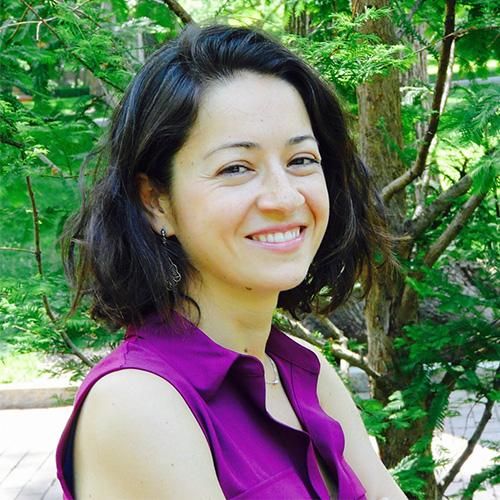Tuğçe Ellialti-Köse

I am an Assistant Professor in the Department of Sociology and Anthropology and my research interests lie at the intersections of law, medicine, and science in criminal justice responses to gender-based violence, thus bridging sociology of law and criminal justice with socio-legal studies on gender and medicine. My most recent research project looks at the role of, and the extent to which, families reproduce social inequalities and examines how immigrant parents — across the class spectrum — approach parenting their children and what types of parenting ethics, specifically regarding the meanings, values, and motivations inform their childrearing practices. I completed my BA (Sociology) at Boğaziçi University, MA (Cultural Studies) at Sabancı University, and PhD (Sociology) at the University of Pennsylvania.
Research
My research interests focus on relationships between gender, law, medicine, and social inequality; understandings and practices of people interacting within domains that law governs; and the complex ways in which the law can help relieve or reinforce discrimination based on different social statuses such as gender, class, and immigration status. More specifically, my research examines socio-legal processes and management of violence against women and gender-based violence as well as the production and circulation of expert and scientific knowledges and practice that infuse these processes, and state systems in general. I do so by developing research designs which deploy in-depth and involved qualitative methods to understand interactions and processes.
I have two main lines of investigation. First, I study the institutional (mainly legal, socio-legal and medico-legal) discourses and practices that operate within the under-examined context of sexual violence against women in settings where the sexual assault law is seemingly progressive and “women/gender-friendly.” Second, I examine how inequities at the intersection of gender, class and immigration status affect one’s relationship with the law, and more specifically one’s decision to engage the criminal justice system in the case of exposure to gendered violence. Both lines of investigation have significant implications for inequality and the reproduction of existing gender injustices and vulnerability deriving from marginalization on the basis of gender, socioeconomic status, and immigrant status.
In my work, I draw from sociological, feminist, and anthropological theories and perspectives that account for processes of violence, inequalities, and injustices, and take up broad theoretical questions about feminist politics and the state, scientific expertise, governance of law, and state responses to violence. Most recently, my research has expanded to look at the interactions between immigration, class, and gender within the context of parenting and childrearing.
Teaching
I devote a lot of time and care to my teaching, which I define as explicitly inclusive and responsive in orientation. Through my teaching and supervisions, I aim to promote critical thinking, cultivate curiosity for the world outside the classroom, and help students see themselves as agents capable of bringing about change. I see mentoring as an effective means to these ends as well as a product of dialogue and inclusion, and an integral part of my efforts to impact students’ lives in a meaningful way.
Recent Publications
- Ellialtı-Köse, Tuğçe. 2024. “The Damage is Permanent”: Law, Women’s “Honor,” and the Psychiatrization of Sexual Violence in Post-reform Turkey. Social Politics: International Studies in Gender, State, and Society.
- Ellialtı-Köse, Tuğçe. 2024. “Refashioning Race: How Global Cosmetic Surgery Crafts New Beauty Standards,” Alka Menon. International Sociology Reviews 39(5) 564-569. https://journals.sagepub.com/doi/10.1177/02685809241278057
- Ellialtı-Köse, Tuğçe. 2022. “The New Sex Wars: Sexual Harm in the #MeToo Era,” Brenda Cossman. Law and Society Review 56(1): 157-158. http://dx.doi.org/10.1111/lasr.12598
- Ellialtı-Köse, Tuğçe. 2022. “Capable Women, Incapable States: Negotiating Violence and Rights in India,” Poulami Roychowdhury. Feminist Legal Studies 30(3): 367-370. https://link.springer.com/article/10.1007/s10691-021-09484-0
Awards, Honors, and Distinctions
- 2025 Early Career Faculty Graduate Advising and Mentorship Award
- 2023 CSAHS Teaching and Learning Excellence Award for Early Career Faculty
- 2025 Nomination for the Last Lecture
- 2022 Nominee for the Decanal Award for Teaching Excellence in Humanities and Social Sciences, Trent University
- 2021 Nominee for the Award for Excellence in Online Teaching, Trent University
- Leah Connor – PhD.SOPR (co-advisor)
- Laura Dawson – MA.SOC (committee member)
- Maria Didanieli – PhD. SOPR (committee member)
- Ashley Ethier – MA.SOC (committee member)
- Sami-Anne Falkenstein – MA.SOC (co-advisor)
- Spencer Hill – MA.SOC (committee member)
- Aidan Lockhart – PhD.SOC (committee member)
- Maxim Storozuk – MA.SOC (advisor)
- Nicholas Turkovich – MA.SOC (advisor)
I welcome inquiries from prospective graduate students interested in studying topics/issues similar to my research interests (see “About”).
Raising Children at the Intersections of Gender, Class, and Culture: A Sociological Study of Parenting in Immigrant Households